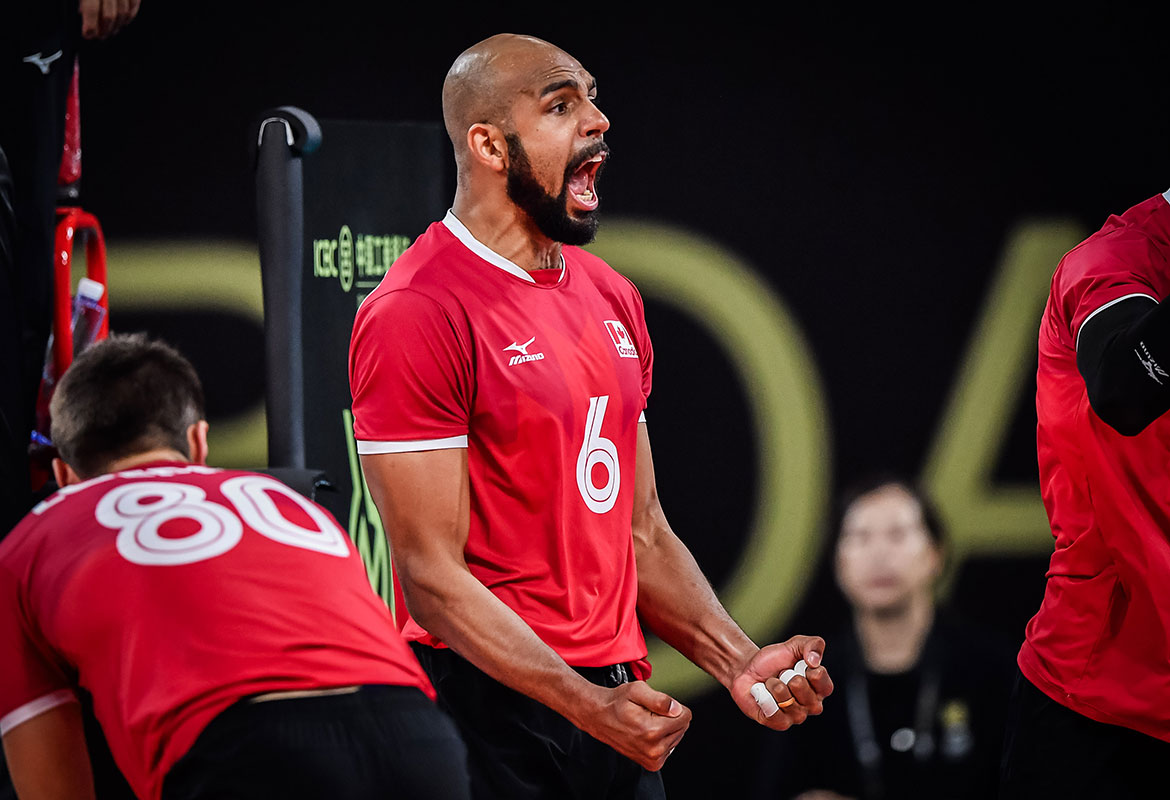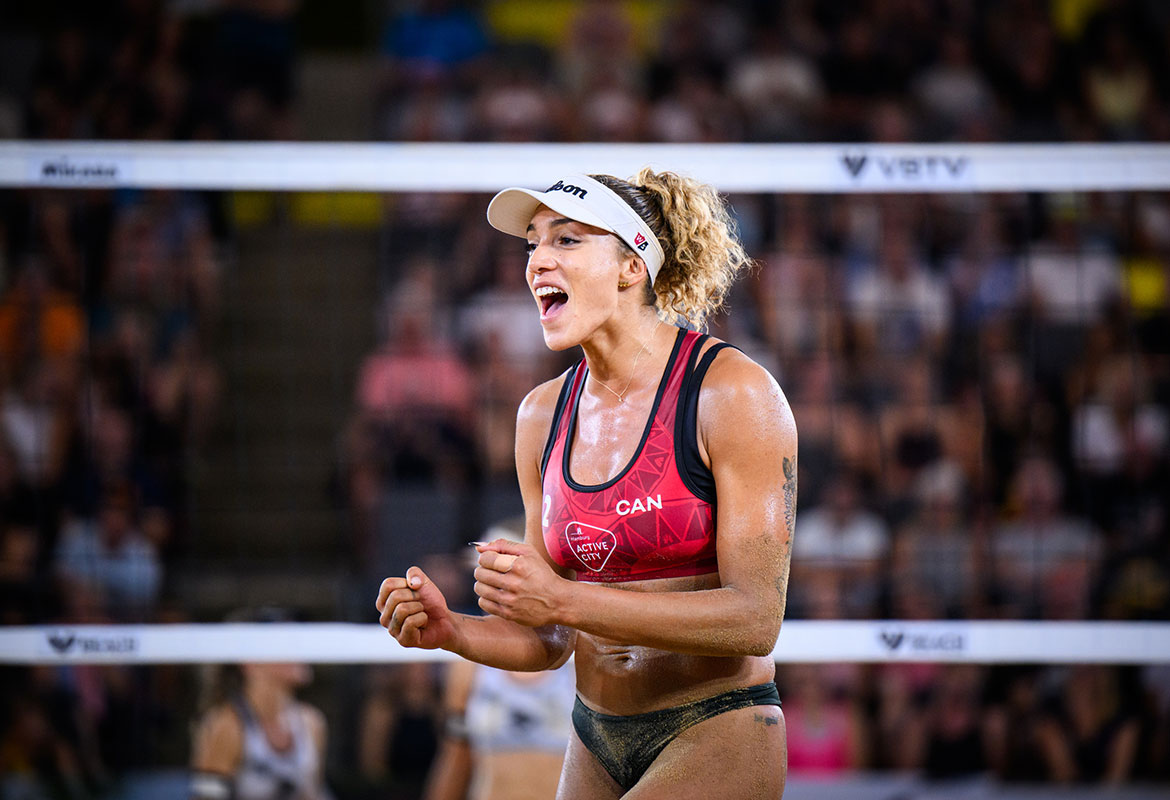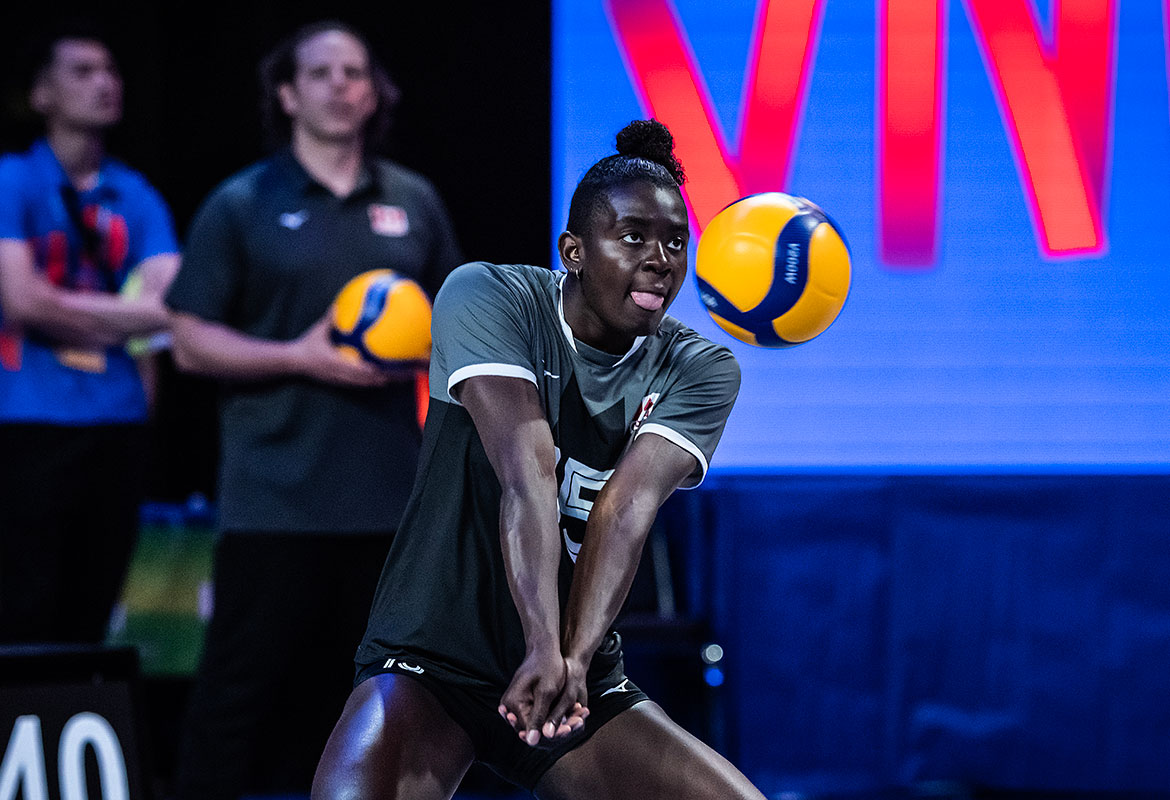Feb the 16 Corporate
Black History Month
Athlete interviews by Mathew Silver
In honour of Black History Month, we asked a few Volleyball Canada national team athletes to tell us about their role models. They name-dropped a who’s who of sports icons, everyone from retired Olympic sprinters to living basketball legends (LeBron James made the list, of course). Seeing their role models perform at the highest level, these Canadian athletes were motivated to dream bigger, work harder. Now, as role models themselves, they are determined to give back, doing whatever it takes to inspire the next generation of Black athletes. Here’s what they had to say:
Andrew Tucker, Men’s sitting volleyball team
Who’s your role model? "Donovan Bailey, the Jamaican-Canadian sprinter who won gold at the 1996 Atlanta Olympics. When I was a kid, he’s the first person I heard my mom talk about. Both of my parents are Jamaican. I was born in New York, but moved to Etobicoke at the age of two. Watching the Olympics, it was my first time seeing all of the countries compete. It was cool seeing the interactions between the Jamaican and Canadian sprinters. The biggest thing was representation. When I watched it on TV, I thought, Do I fit into this picture? To see Bailey performing on the big stage like that, it let me know that I could make it to the Olympics.”
What does it mean for you to be a role model?
"It means a lot. Now that I’m in this position, I like to pass the knowledge along, whether it’s in sports or life. I do a lot of public speaking with Parasport Ontario. We also do sport demonstrations: sitting volleyball, wheelchair basketball, bocce, things like that. My brother, Nicholas, also has a disability. Seeing me play at the 2015 Parapan American Games inspired him to play ball sports, too. Now he plays at a club in Brampton.”

Danny Demyanenko
Danny Demyanenko, Men’s indoor national team
Who’s your role model? "LeBron James. I’ve always been a fan of basketball. He’s always been at the top of his game, not just in the sport of basketball but in the community. Over the years, I’ve seen LeBron develop as an athlete, activist and philanthropist. Also, his dedication to competing at the highest level is unreal. His attention to recovery is something I try to emulate myself. I did some reading and, apparently, he spends (USD) $1.5 million on his body every year. I try to make one investment into my body every year, in terms of recovery equipment, to optimize my performance. I want to play as long as I can at the highest level.”
What does it mean for you to be a role model?
“I’m quite flattered by it. I’m actually half-Dominican, half-Ukrainian. It puts me in a unique situation. I try to stay connected with both communities. In Canada, there are a lot of mixed families and I want to make sure they have representation. I’ve been playing volleyball in Montpellier, France, for the past four years. Recently there were a couple of kids at one of our matches. They were super excited to see someone like them playing the sport. It was a big moment for me. More and more, the Black community is being represented in volleyball.”

Brandie Wilkerson, Olympian
Brandie Wilkerson, Women’s beach national team
Who’s your role model? "Serena Williams. I can relate to her, in terms of coming from nothing and not really having a role model in your sport. I was originally born in Lausanne, Switzerland. My mom is Swiss. My dad is a Black American from Texas. They met in Europe. When I was six or seven, looking for a place to feel diversity in culture, they moved to Toronto. We lived in a diverse, low-income community called Rexdale. Like Williams, I put my head down and did the work. I like how she played with aggressiveness and fire, style and femininity, changing the image of the sport, transcending gender and race. I also like her on-court style. She wears bright colours, interesting textures, and different cuts. Off the court, she’s a businesswoman, with her fashion line. I see her products everywhere. I think I have an entrepreneurial mindset, too."
What does it mean for you to be a role model? “If it wasn’t for other people in the community encouraging me, I wouldn’t be here now. They put me in a volleyball club, bought me shoes, because my family didn’t have the money to do those things. I think I play a role in opening doors, expanding people’s perspectives, creating the potential for more diverse stories to enter new spaces. I have a responsibility to educate and inspire my community, to continuously funnel more people who look like me into the sport. It’s important to respect the history of Black culture and know there’s a lot of deep trauma and healing that needs to be done. I want to play a role in that.”

Shainah Joseph
Shainah Joseph, Women’s indoor national team
Who’s your role model? "Destinee Hooker, former outside hitter for the U.S. women’s national team. When I was watching the 2012 London Olympics, a lot of people said I reminded them of Hooker. She was a high flyer and a fierce competitor, like me. I think it was a matter of visibility.
Growing up in Ottawa, playing club volleyball, I was the only Black athlete on my team. I felt like I could relate to Hooker, because I could jump really high and hang on a basketball rim when I was in the sixth grade. Watching her highlights, I realized that I needed to be jumping as high as I could, hitting the ball as hard as possible, every single time. Eventually, I set the record for the women’s national team, touching almost 11 feet."
What does it mean for you to be a role model? “I try to represent my race well, through my actions and behaviour. Being a good teammate, working hard, earning a spot on the national team. I think it promotes the idea that all Black athletes in Canada can have the same opportunities as me, regardless of their race or colour. The only thing that matters is the work you put in and the way you treat people.”